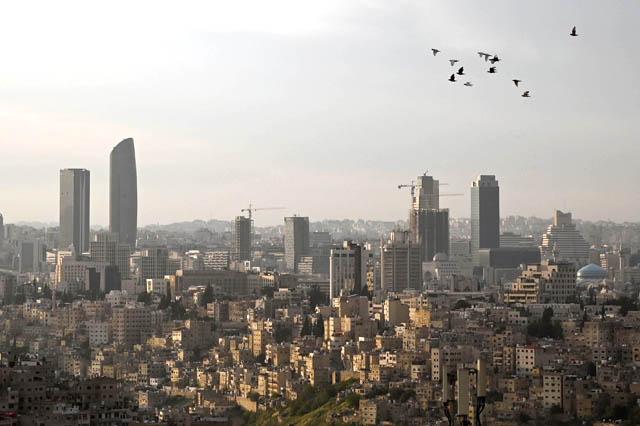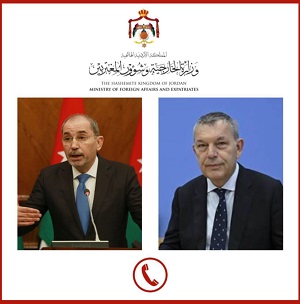S&P maintains stable outlook for Jordan

The Jordan Times
AMMAN — International credit rating agency Standard and Poor’s (S&P) Global Ratings on Friday affirmed its “B+/B” long-and short-term foreign and local currency sovereign credit ratings on Jordan, noting that the outlook remains stable.
“The stable outlook balances our expectation that, over the next 12 months, donor funding will continue to support the government's financing needs and keep debt-servicing costs reasonably low, against the risk that the fiscal performance is significantly weaker than our current projections,” S&P said in its latest report on the Kingdom.
The report estimated the Kingdom’s real gross domestic product (GDP) to contract by 5.5 per cent, attributing the estimation to the “collapse of the international tourism industry since March, weak global and domestic demand, and lower remittances from the Gulf Cooperation Council (GCC) states, partly due to lower oil prices”, which it said will depress economic activity.
“We are affirming our ratings on Jordan, despite the COVID-19-related contraction of economic output and increasing public and external debt levels, because we expect Jordan will continue to benefit from access to domestic banks with excess liquidity and external sources of funding, primarily on concessional terms,” the agency said in the report.
The report also estimated that concessional lending comprises more than 60 per cent of external government debt and 25 per cent of total central government debt, expecting further international assistance would be forthcoming if needed, especially form the US and the GCC states.
The fiscal deterioration will be temporary, S&P forecasts, expecting also that the increase in public debt will slow beyond 2020 on the back of fiscal consolidation measures.
“The government’s medium-term efforts to revive investment and create jobs while broadening the tax base could support economic growth prospects and gradually reduce fiscal pressures,” the report said.
The four-year International Monetary Fund’s Extended Fund Facility of $1.3 billion that was approved in March will provide a policy anchor to balance inclusive growth and debt sustainability through 2023, according to the agency.
The ratings for the Kingdom are controlled by the economy’s large external imbalances and growing external debt, the report said, adding that “public finances are weak, while economic wealth levels and trend economic growth rates are low”.
It also highlighted how Jordan has had to cope with the indirect effects of conflicts in the region and the refugee influx, which also “weakened the government’s finances and slowed the country’s per capita economic growth trajectory”.
The rating agency said it could lower the Kingdom’s rating if much higher debt accumulation by the central government or state-owned enterprises was projected, which could affect its view on the government’s institutional ability to maintain sustainable public finances.
“We could also lower the ratings if funding sources became strained, for example if currently strong bilateral and multilateral donor support were to diminish,” the report added.
However, S&P could raise the ratings if Jordan’s external imbalances “narrowed sharply and foreign investment were to rebound, boosting foreign exchange reserves”.
“A positive rating action would also hinge on a substantial reduction in net government debt levels and a notable improvement in growth prospects, spurred by government structural reforms, for example in the energy sector,” the report noted.




